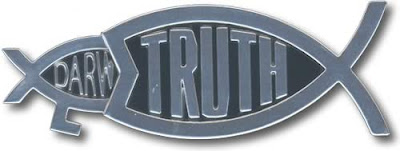
Late yesterday afternoon, I walked to the little "Mom and Pop" store up the road and across the street. It's about a one mile walk both ways, and I needed the exercise.
The 'folks' had gathered, as they often do, at the end of their work shift and before they head home for supper. I always enjoy listening in to 'politics at the grass root level'.
The other day, they were talking about health care. The day before that, they were talking about the impact of all the new homes on the local environment.
Mind you, you won't find any high rhetorical flourishes or skilled debating techniques or finely honed political strategies. You have to search for it, but underneath the split infinitives, dangling participles and unmatched nouns and verbs, you will find some fascinating social analysis and commentary.
For the most part, however, it is unfiltered, unvarnished, and sometimes uninformed or misinformed opinion. You know. Like a lot of blogs, except a whole lot more interesting because you can see real faces on real people.
It's just a guess, but I'm thinking that for many of these folks, Fox News is a primary news and editorial opinion source. You know. Like most of those who comment over at SFiF and T19 - except the local folk here are a whole lot more tempered.
Indeed, they seem restrained in comparison. They really like each other and they love Jesus, and that makes all the difference.
Or, maybe it's the iron-fist-in-a-velvet-glove moderator who also owns and manages the joint. "Linda" often quiets a conversation headed toward more than a low simmer with the admonishment, "Well now folks, we're all Christian here, ain't we?" Everybody knows exactly what that means, and the conversation immediately snaps back into place.
The conversation du jour was about the recent ELCA decision to accept "partnered" LGBT ministers.
One old fella pronounced that "God don't like gays. It's in The Bible. You can read it for yourself," picked up his bag containing a red pack of Marlboro, a six pack of green bottled Rolling Rock and a package of Ho Ho's and left, before calling over his shoulder, "I ain't no damn Lutheran. Ain't a Methodist, either and they are next, mark my words. My kin is Baptist. We believe in The Bible."
"Linda" shook her head as the others looked at each other and back to her to get their next cue.
"Huh," she said. "How many wives has he had?"
Everyone laughed the kind of laugh that was just a little too loud, the kind of laughter that serves to break the tension more than appreciate the joke.
Someone, a woman, talked about her nephew "up in Massachusetts" who had gotten married last year. "He's a nice boy. A good boy. Brought up the right way. He's gay but he done the right thing. I don't have any problem with how God made you as long as you do the right thing about it."
The others carefully considered her words as many nodded their head in agreement.
A man offered, "We ain't got no control over how our kids and grand kids turn out, you know? All you can do is bring them up with good moral values. I ain't no Lutheran. I'm an Evangelical, and as near as I can figure ain't no one more Christian than an Evangelical, but that don't mean that the others don't try to be Christian."
He considered his words for a moment before adding, "I guess that's why they want their ministers 'partnered' if they're gonna have to be gay."
Another moment of silence before someone else pipped up, "Hey, but ain't these Lutherans 'Evangelical'? That's what the "E" stands for, ain't it? E . .C . .or L . . or C . . . or whatever it is, can't keep it all straight, like L, G, B, T - what the hell is all that about? - but definitely the E is for 'Evangelical' and the A is for AMERICAN. I know that for a FACT."
"Huh," said the Evangelical. "Well, then, they are trying to do their best, I suppose, " then added, "It's a tough call, you know. Trying to be a Christian and an American in these times."
I suspect the "American" part was code for something from another one of their conversations - no doubt something about immigration or, probably the current POTUS.
I found that statement fascinating and, without realizing it, my body moved before my head engaged and I suddenly became visible from behind the display containing large, puffy bags of potato chips, corn chips and pop corn.
"Hey, there," someone said, "You're the Episcopal Priest, right? Live over at the Cove, ain't it? Come on over and join us."
I winced as I heard my stomach fall to my feet. I was praying no one saw me gulp.
"Linda" eyed me cautiously. "Elizabeth, ain't it?" she asked, but her eyes asked, "Don't start nothin' here, okay?"
I nodded to both the spoken and unspoken. I was more than happy to oblige to the later, but not too pleased about the former.
"Well," I faltered, "I really can't stay long."
"Oh, sure," said "Linda," but ain't the 'Piscopalians been doing this for a while now? I mean, didn't ya'll sorta start this ball rolling in the first place?"
"Well," I cleared my throat, "the truth is that the church has been ordaining gays and lesbians for years now. Centuries, actually."
"Yup," said someone in the gathering, "Like the Catholics. Roman Catholics." It was hard not to miss the disdain in his voice.
"It's just that now, gays and lesbians are being more honest about who they are." I instantly hated myself for using the third person plural rather than the first person singular, but I pressed on.
"And, honesty - telling the truth in love - is a Christian value, is it not?" The group murmured in agreement.
One man who had been nodding his head caught himself up short and said . . . oh, you knew this was coming . . .
"But the Bible says that homosexuality is wrong. It's a sin. An abomination in the sight of the Lord. With all due respect, you being a minister and all, are you saying that the Bible is wrong?"
"Yes," I said, a with a little more emphasis than I intended, which I knew immediately by a few of the gasps I heard.
"Well, let me ask you," I added quickly, "The Bible says that the earth is flat. Do you believe that?"
The silence was deafening. I wasn't exactly in the Lion's Den, but I could imagine how Daniel felt. Except, these were my neighbors.
"The Bible also says that mental illness and epilepsy is due to demon possession, and left handed people are not to be trusted. Do you believe that?"
A few folk shuffled their feet.
"The Bible also says that you can't eat pork and I see some delicious ribs and some sliced ham over there at the deli counter. Any of you buy any of that recently?"
There were a few chagrined looks all around.
"The Bible says that you shouldn't wear two different fabrics together, that you shouldn't eat any crop that is at the outer edges of the field because that should be saved and given to the poor, and that you shouldn't earn interest on your savings. Anybody guilty of any of those things?"
One woman said, "Now I don't feel so bad about not having any money to lose in the stock market."
Nervous laughter ensued, for which I was grateful. I may have been 'influencing a few people' but I feared I wasn't exactly making friends, either.
"Linda" came to my rescue. "And Jesus is pretty clear about divorce, ain't he?" Everybody looked to her - the obvious authority in the room.
"Seems to me that all the Lutherans and 'Piscopalians is doin' is asking folks to be honest and to follow the rules. And, rules is rules, right?"
"Well, yes," I said, cautiously. "And some rules have to change as our understanding of the world God made changes. Like the world being flat and our understanding of mental illness and other illnesses change."
"Right," she said, "And, some rules don't ever change. Like takin' care of the poor, and like the rules about divorce that Jesus himself gave us. I ain't never read the whole Bible, but I know what Jesus said and he never said nothin' about no homosexuality. He only said that we were supposed to love one another. Ain't that right, pastor?"
"You are absolutely correct," I said, smiling at her - mostly in gratitude for her deft rescue of the conversation, adding, "In fact, that's the only commandment he gave us, 'Love one another as I have loved you.'"
There were soft murmurs of agreement.
"And now, I'm going to take my leave of you," adding as a little joke, "A good pastor always knows when to end the sermon."
"I wish my pastor did," said one man, as the others laughed and said, "Mine, too." The sound of back slapping and side comments filled the air, dissipating any tension that once had been there.
I picked up my bag of milk and eggs and two bananas and started to make my way to the door. "Thanks, pastor. You were great, pastor. Come back again, pastor," a few of them called out to me, waving warmly. A couple shook my hand kindly. Others looked as if they were still considering my words while still others clearly looked perplexed.
As I walked back home, I thought about all that had been discussed - rehearsing over and over again what I had said. I found myself doing the usual, "woudda-coudda-shoudda" talk in my head. No "Susan Russell, Queen of the Soundbite," I'm particularly brilliant 10 minutes after conversations like that.
By the time I got back home, I realized that most people - even the ones who watch Fox News - are not mean or hateful.
Most people - even those whose kin are Baptist - are just trying to figure out how to live their lives in this rapidly changing world. How to reconcile what they've always been taught and what they've come to believe in the midst of the realities they are facing.
Most people - and not just the Evangelicals - are just asking where the rules - the boundaries - are in the shifting sands of cultural reality. We all want 'timeless truth' and 'infallible doctrine'. We want to know that some things never change.
Like, God's love and mercy and grace - undeserved and freely given.
That's when I came to the Great Insight Du Jour:
It's not the people.
It's not even so much the "Media".
It's the leadership.


























